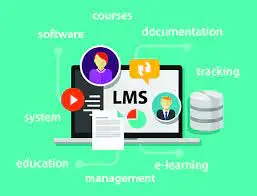LMS Development Services is now the vital part of digital training programs for savvy businesses, schools, and organizations everywhere. By offering a single learning platform, LMS development services help to centralize the catalog and streamline course management and tracking, also facilitating the automation of administrative tasks. Nowadays, companies are turning to LMS Development Services to get the in-house training development that is cost-effective, flexible, and data-powered for their evolving workforce and learner needs.
Why Do You Need LMS Development Services?
Centralized and Standardised Learning Management Subheading: Centralisation & Consistency of LMS This is the master feature.
All resources and training material are now combined into a single platform with LMS Development Services. This process eliminates stray files and wasted effort, making sure all learners access the same material and are up-to-date.
There is no longer a need for teams to organize and track content using their email, spreadsheets or paper-based systems.
With standardized delivery compliance is guaranteed – all the more relevant when dealing with regulated industries.
Real-Time Tracking and Powerful Analytics
Other high level reporting options are offered by LMS Development Services for tracking of engagement, completion, compliance and performance. They can understand skill gaps or bottlenecks and then use that data to make better decisions.
Tailored dashboards show learning patterns, like which modules are most frequently used or common points of difficulty.
Managers could monitor pupil progress and step in with extra resources where required.
Scalability and Flexibility for Growing Needs
– onboarding hundreds or thousands of new employees or serving students across several regions – LMS Development Services Systems easily scale to link self-paced learning with blended learning. Add or update training programs with minimal effort and no manual rollouts. LMS training programs with cloud storage provide access to all, bridging geographies for inclusivity and engagement.
Cost and Time Savings
LMS Development Services Systems, since automated course assignments, notifications, assessments, and certifications drastically reduce LMS training overhead and expense compared to traditional in-person or manual training. Since less time is spent traveling and sending print materials, the costs can be reduced there. Training is more efficient when it is conducted by instructional designers rather than expensive trainers.
Enhanced Personalization and Engagement
Companies can personalize learning paths based on data, job role, location, or user preference. LMS software development services that provide a training feature: custom content, multimedia content creation and editing features, and gamification, microlearning, and social learning tools. Employees can learn more and learn at their own pace, and they can access resources whenever they need them. LMS software with adaptive learning features means everyone receives the personalized support required for success.
How LMS Development Services Enable Compliance and Future Readiness
Simplifying Regulatory Compliance
Certifications, policy updates, and compliance training are all automatically tracked by LMS Development Services Systems. This significantly reduces business risk and ensures that you’re always audit-ready.
Data Security and Integration
LMS Development Services Systems ensure the confidentiality of your data through advanced encryption and role-based permissions. Integrate LMS software with HR, CRM, and productivity systems to simplify your workflow and maximize the impact.
Case Study Inspirations – LMS in Action
Corporate Training Transformation
A global leader in the retail sector reduced new employee areas by 40% by using LMS Development Services and improved retention using self-paced, mobile learning modules. The program resulted in a talent pipeline that could react quickly to seasonal labor requirements.
Education Sector Breakthroughs
A university implemented a customized LMS for consolidating course materials, simplifying the grading process and providing hybrid instruction. These efforts and similar practices boosted student engagement and facilitated scaling digital programs for remote students with ease.
Conclusion
In today’s digital world, organizations endeavoring to provide flexible, impactful and data-driven learning need LMS Development Services. From centralized content to automated compliance and infinite scale, LMS Development Services frees teams to concentrate on growth and learning outcomes—and not just the administrative overhead. And yet, by working with a Corporate LMS provider any business or educator can future-proof their people for 2025 and beyond – delivering tangible results in terms of increased productivity, better knowledge induction and stronger business resilience.




